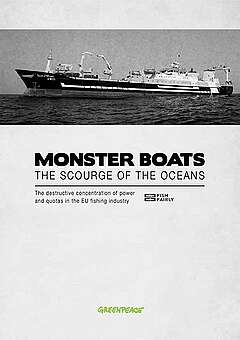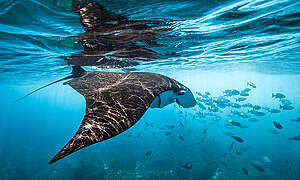The destructive concentration of power and quotas in the EU fishing industry

For decades, the European Union (EU) and its member states have allowed their industrial fishing fleet to swell to an unsustainable size, subsidised by taxpayers’ money – most of which ends up in the pockets of a small number of wealthy operators.
For decades, the European Union (EU) and its member states have allowed their industrial fishing fleet to swell to an unsustainable size, subsidised by taxpayers’ money – most of which ends up in the pockets of a small number of wealthy operators. In 2008, the
European Commission estimated that parts of the EU fishing fleet were able to harvest fish significantly faster than stocks were able to regenerate.
There is no evidence that this situation has substantially improved since then. The problem of oversized fleets using destructive fishing methods is a global one, and the results are alarming and indisputable – our oceans and fish stocks are in deep crisis with too many large and destructive vessels chasing too few fish. At the same time, low-impact fishermen are struggling to stay in business. Despite new commitments, EU fisheries ministers and other decision-makers around the world are failing to act, with nobody willing to move first.


